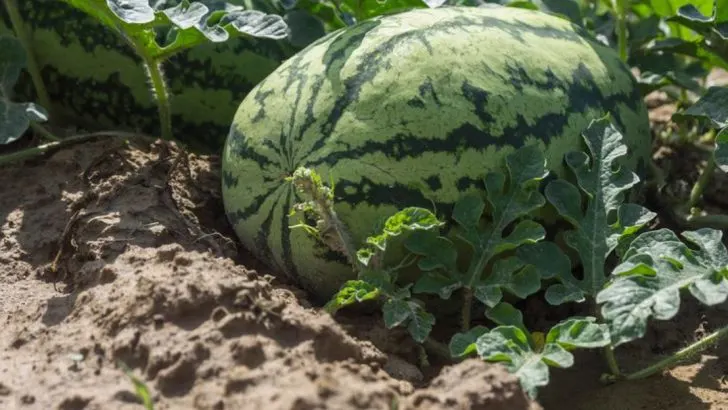Growing food in Mississippi’s thick, sticky soil can feel like a battle, especially when summer rains turn your garden into a mud pit. Some plants struggle to take root, while others thrive in the heavy, moisture-rich earth—if you know what to grow. The trick is choosing crops that can handle water retention, heat, and humidity without rotting or wilting.
From deep-rooted vegetables that push through compact soil to swamp-loving fruits that actually prefer soggy conditions, these 21 crops are built to handle Mississippi’s unique growing challenges. Whether you’re working with clay-heavy beds or waterlogged fields, these plants will flourish where others fail.
Rice
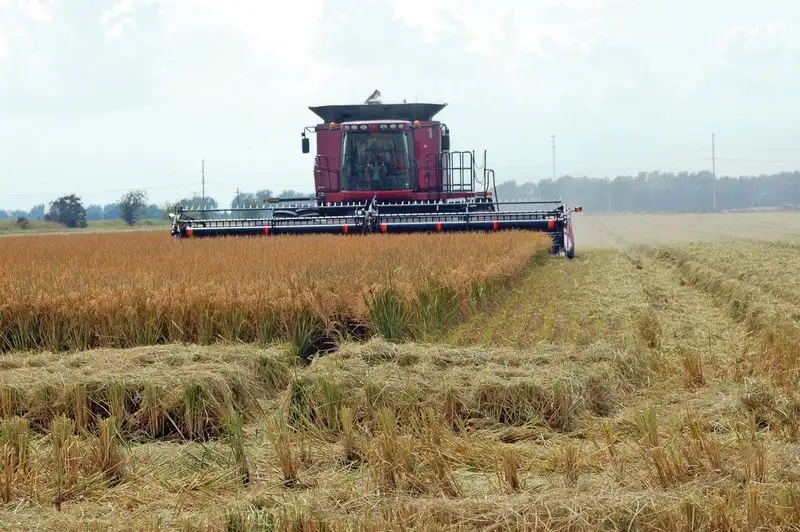
In Mississippi, rice finds a comfortable home amidst the mud. The paddies, often intentionally flooded, thrive in wet conditions, making them perfect for the region’s sticky soil. Farmers can capitalize on the natural moisture, reducing the need for extensive irrigation systems. Rice not only offers a staple food source but also supports the local economy. Consider rotating with other crops to manage soil nutrients effectively. It’s a resilient choice for those dealing with Mississippi’s wet climate. Beyond practicality, a rice field offers a serene, green landscape that’s both functional and picturesque.
Sweet Potatoes
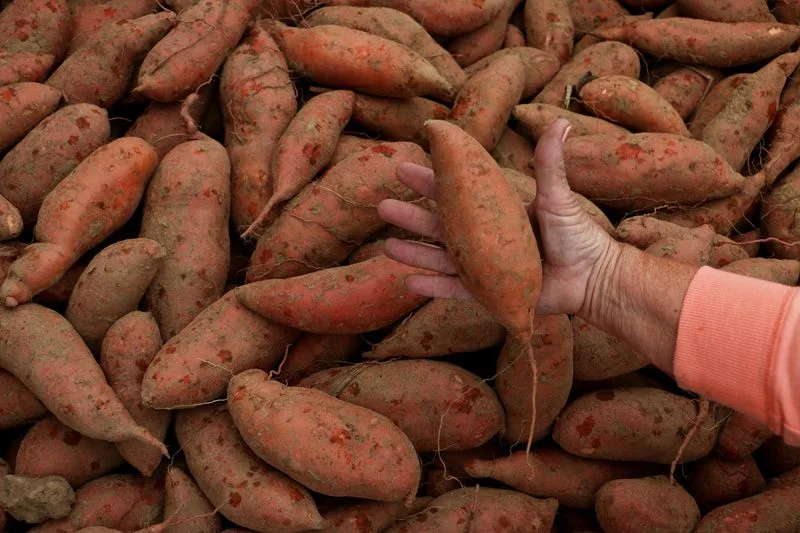
Sweet potatoes are more than a Thanksgiving side dish; they are a sturdy crop that loves Mississippi’s mud. Their deep roots anchor them well, allowing them to pull nutrients effectively. With proper mounding, they resist rot and thrive, making them a reliable choice. Sweet potatoes offer versatility, from fries to pies, boosting their market appeal. Their lush vines also provide ground cover, reducing weed growth. This crop can enhance soil health when rotated properly, making it a smart choice for sustainable farming. Embrace sweet potatoes for both economic and environmental benefits.
Soybeans
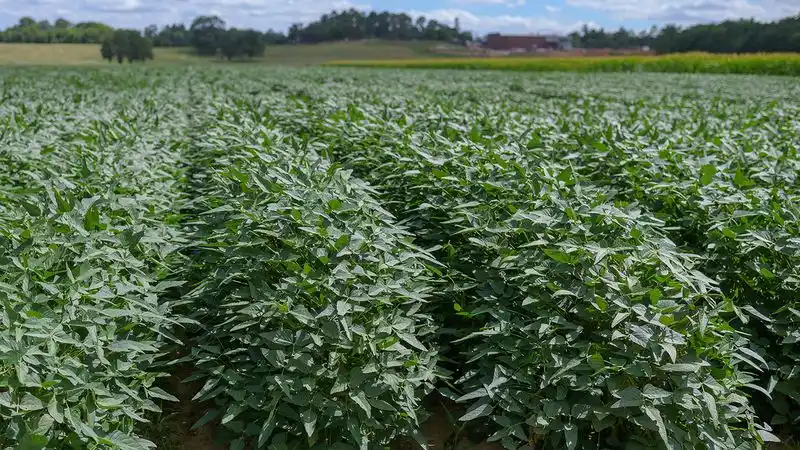
Soybeans offer a robust solution for Mississippi’s challenging mud. Known for their nitrogen-fixing abilities, they improve soil fertility naturally. This makes them a valuable rotational crop, supporting future yields. Soybeans’ adaptability to wet conditions means less stress about drainage. They serve as a protein-rich food source and have a wide range of market uses, from edamame to livestock feed. Their dense canopy helps suppress weeds, reducing the need for herbicides. Choosing soybeans is a step towards ecological farming, aligning with both economic and environmental goals.
Peanuts
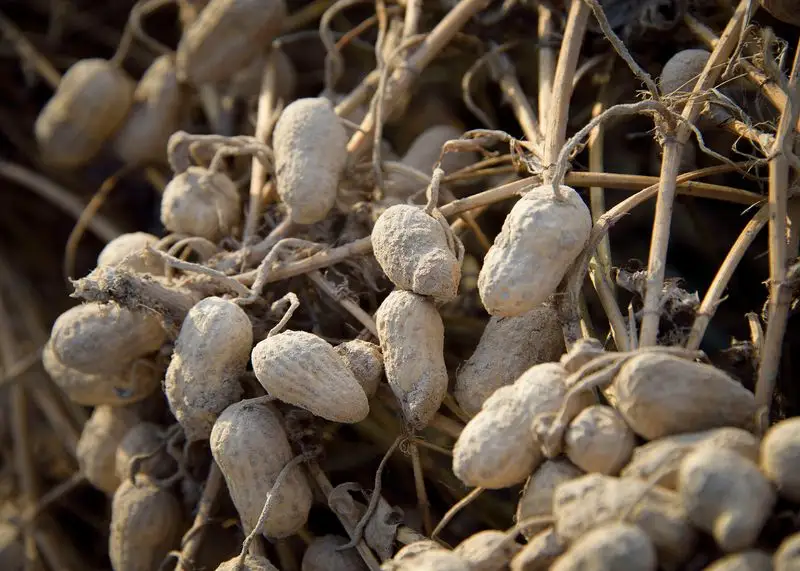
Though often associated with the South, peanuts are particularly suited for Mississippi’s sticky terrain. Their underground growth protects them from surface conditions, while their nitrogen-fixing properties enrich the soil. Peanuts offer a dual benefit: a lucrative cash crop and a soil enhancer. They are cherished for their versatility, from snacks to oil production. Farmers can enjoy high demand with relatively low input costs. By investing in peanuts, you also contribute to sustainable practices through natural soil improvement. It’s a crop that benefits both the farmer and the environment.
Cotton
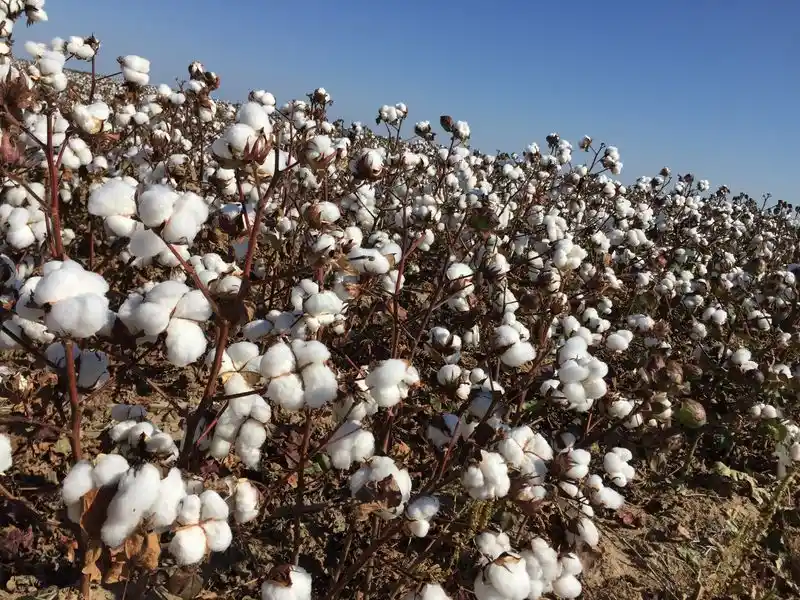
Cotton has been a staple in Mississippi for generations, enduring the sticky mud with resilience. This crop adapts well to the state’s climate, and its deep-root system helps it access nutrients beyond the muddy surface. Cotton’s economic significance is unmatched, providing raw material for the textile industry. Though it requires careful management regarding pests and weeds, the payoff can be substantial. Its presence in Mississippi fields is both historical and profitable. A well-managed cotton crop can thrive, offering financial rewards and contributing to the agricultural legacy of the region.
Corn
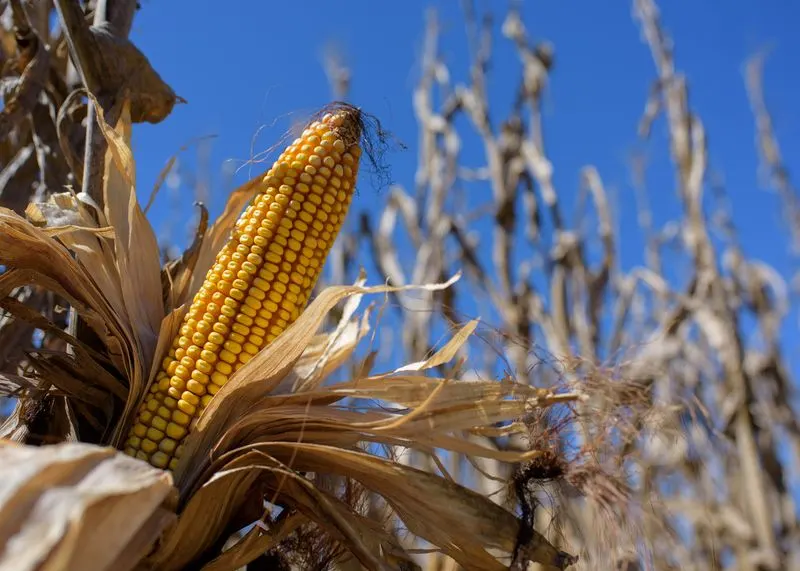
Corn, with its towering stalks, stands tall against Mississippi’s muddy challenges. This versatile crop benefits from the region’s warmth, using the moisture-laden soil to fuel its growth. Farmers often rotate corn to enhance soil health and manage pests. As a staple in both human consumption and animal feed, corn’s utility is widespread. Its ability to produce high yields makes it a favorite among farmers. In Mississippi, managing mud means focusing on drainage and soil structure, which are crucial for a successful corn harvest. Embrace corn for its economic and nutritional value.
Sorghum
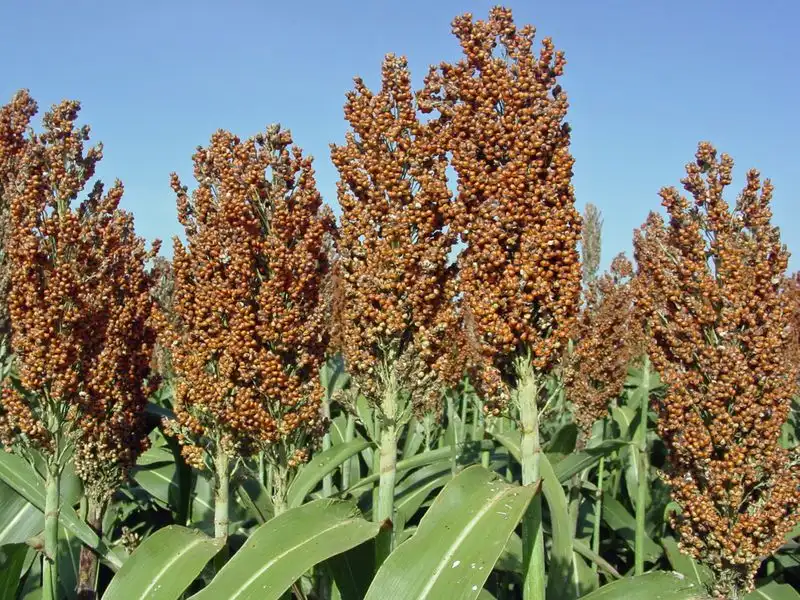
Sorghum is a versatile crop that thrives in Mississippi’s tough conditions. Its adaptability to poor soil and resilience to mud make it a reliable choice. Sorghum serves various purposes, from grain to syrup production, offering farmers multiple revenue streams. This crop’s deep-root system helps manage erosion and improve soil structure. It’s drought-tolerant yet loves the muddy conditions, ensuring growth despite challenging weather. Sorghum’s diverse applications include livestock feed and biofuel, adding to its economic appeal. It’s a crop that promises both sustainability and profitability in Mississippi’s fields.
Okra
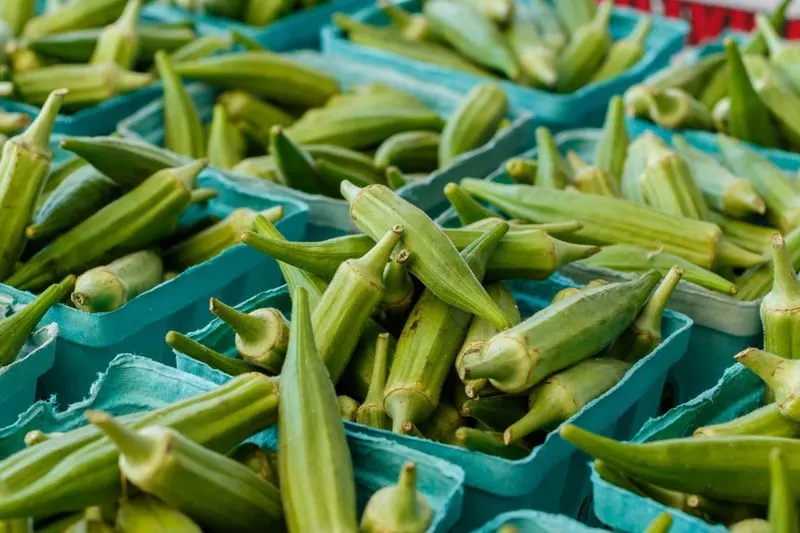
Okra brings both flavor and resilience to Mississippi gardens. Known for its love of heat, okra thrives in the sticky summer mud. Its fibrous stalks stand firm, resisting rot even when the ground is sodden. Okra’s culinary versatility, from gumbo to pickles, ensures its popularity in Southern kitchens. It’s not just the pods that are useful; the plant’s leaves can be composted to enrich soil. For farmers, okra offers a quick-growing option with repeated harvests throughout the season. It’s a crop that marries culinary tradition with agricultural practicality.
Watermelon
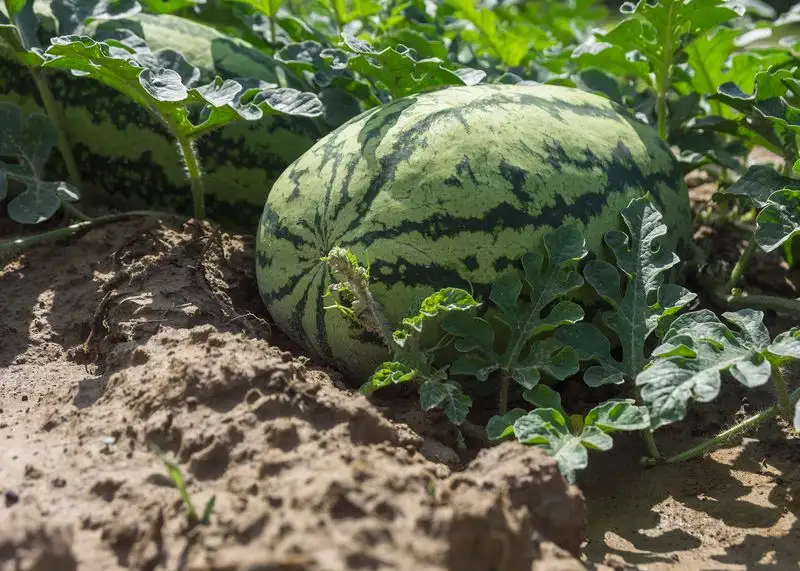
Watermelon, synonymous with summer, thrives in Mississippi’s muddy milieu. Its sprawling vines love the warm, wet conditions, producing juicy fruit that’s a favorite at picnics. Watermelon’s deep roots tap into the nutrients below the mud, ensuring robust growth. For farmers, it’s a lucrative crop with high market demand during the sweltering months. Watermelons require space but reward that investment with bountiful yields. Planting them in raised rows can mitigate some of the mud-related challenges. They offer a sweet payoff for navigating Mississippi’s summer conditions.
Cucumbers
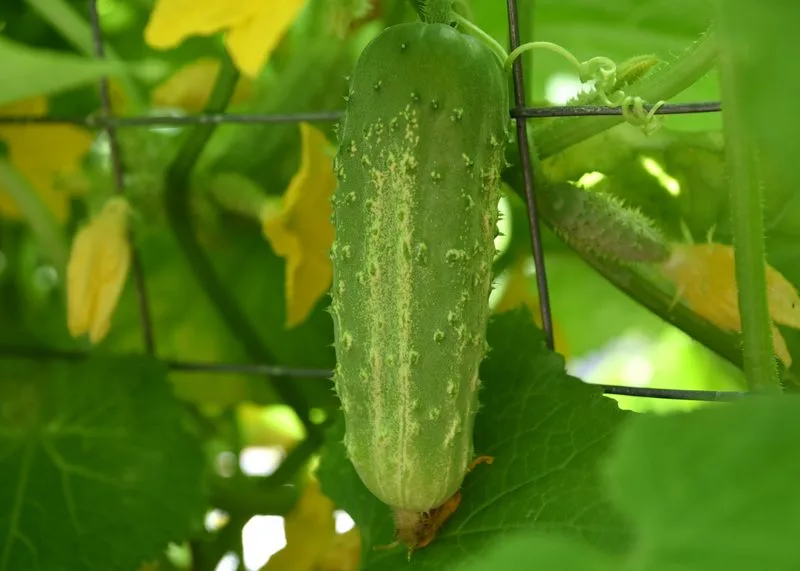
Cucumbers find a welcoming environment in Mississippi’s damp conditions. These refreshing veggies appreciate the warmth and moisture the state provides. With proper trellising, cucumbers can avoid the detrimental effects of too much mud, ensuring clean, healthy fruit. They serve as a staple in salads and sandwiches, boosting their demand. Cucumber plants grow quickly, allowing for multiple harvests throughout the season. Farmers benefit from their short growth cycle and high yield, making them a profitable venture. Embrace cucumbers for their refreshing crunch and agricultural benefits.
Tomatoes
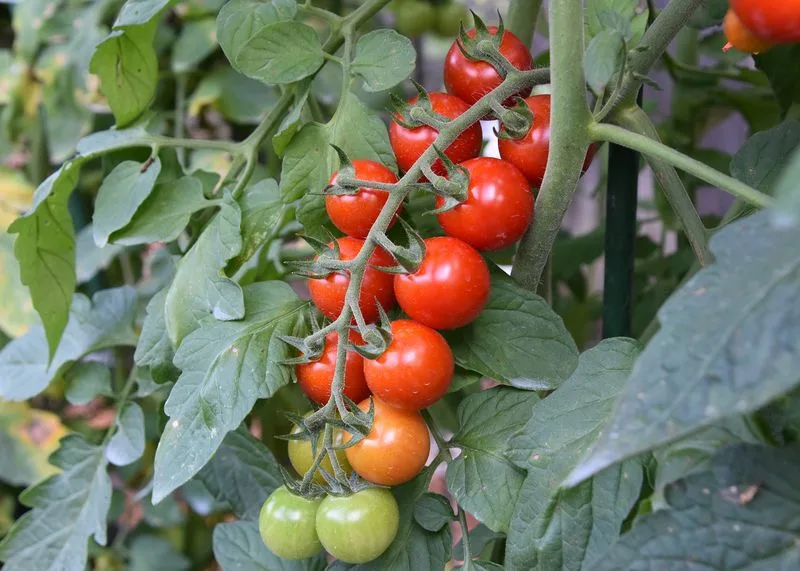
Tomatoes, with their vibrant red fruits, are a gardener’s delight in Mississippi. These plants flourish in the heat and can handle the sticky summer soil with the right care. Trellising helps keep fruits off the ground, reducing rot. Tomatoes offer more than just fresh produce; they are a staple in sauces, soups, and salads. Their market appeal remains strong, offering farmers a reliable income source. Proper soil management, such as adding organic matter, ensures that the plants get the nutrients needed. Tomatoes are as much a culinary favorite as they are a profitable crop.
Squash
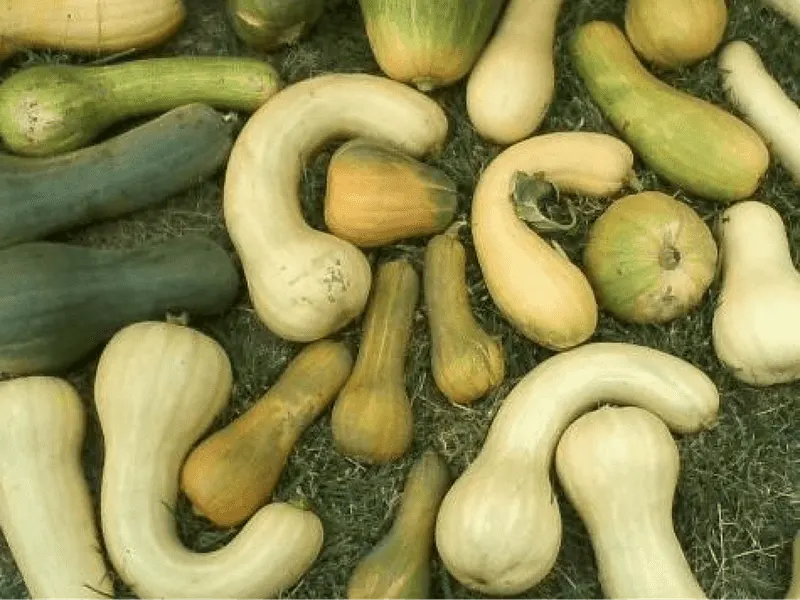
Squash stands strong in Mississippi’s challenging summer mud. This plant is not only versatile in the kitchen but also resilient in the garden. Squash vines cover ground efficiently, reducing weed growth and maintaining soil moisture. With various types available, from zucchini to butternut, farmers can diversify their produce without changing crops. Squash thrives in warm, wet conditions, producing abundant yields. Its wide leaves offer natural shade, promoting healthy soil. For commercial and personal gardens alike, squash provides both culinary delights and practical benefits.
Sunflowers

Sunflowers bring cheer and utility to Mississippi’s fields. These towering plants flourish even in sticky mud, their deep roots stabilizing the soil. Sunflowers are known for their ability to improve soil health and offer habitat for pollinators. The seeds provide a nutritious snack and can be pressed for oil, adding economic value. Sunflowers’ striking appearance makes them popular in agritourism, drawing visitors to fields. For farmers, they are a low-maintenance crop that contributes to soil structure and biodiversity. Sunflowers marry beauty with practical advantages in agriculture.
Beets
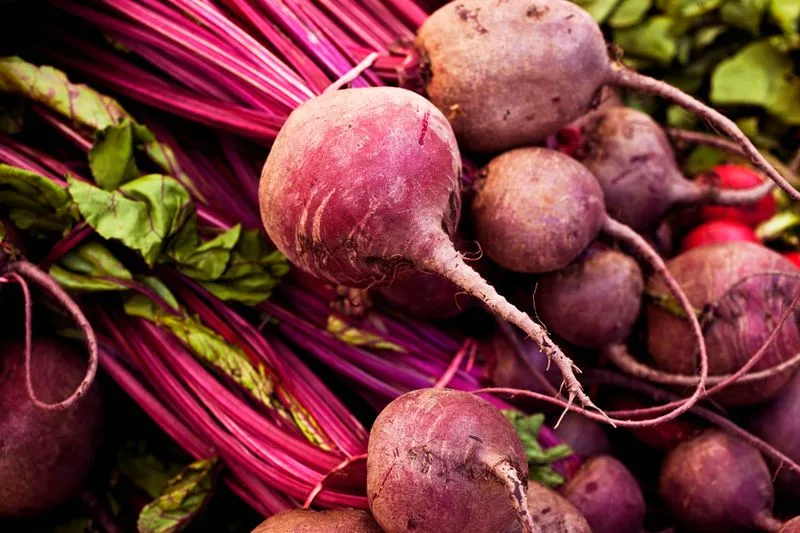
Beets find their niche in Mississippi’s mud, thriving with little fuss. These root veggies dig deep, drawing nutrients from below the muck. Beets offer more than just their vibrant roots; the greens are equally nutritious and marketable. They grow well in cooler parts of the summer, providing a versatile crop option. Beets contribute to soil health, improving structure and fertility over time. For those aiming to diversify their produce, beets offer a unique taste that appeals to health-conscious consumers. Their dual-purpose nature makes them a worthy addition to any farm.
Spinach
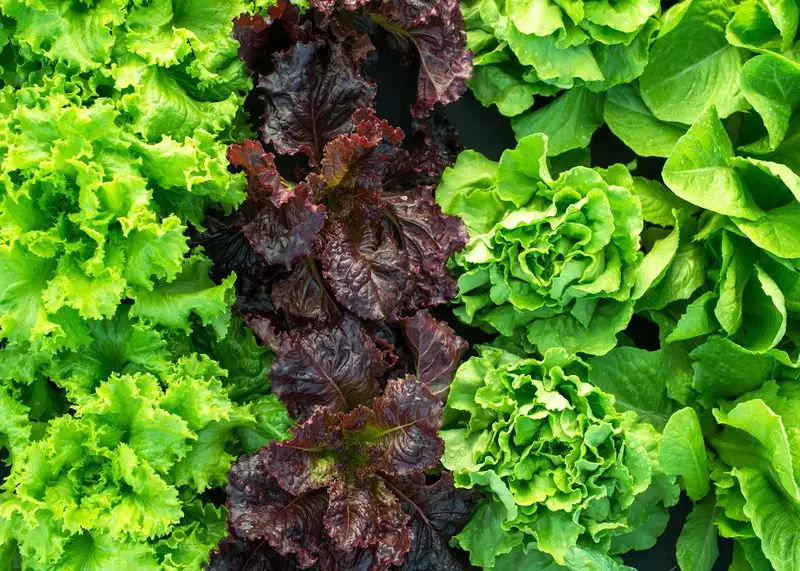
Spinach is a surprising contender in the Mississippi mud, but it thrives with proper care. These leafy greens prefer cooler weather but manage well in the state’s summer if planted early. Spinach provides nutritious leaves that are always in demand, from salads to smoothies. It’s a quick-growing crop, allowing for multiple harvests. Spinach also contributes to soil health, with its shallow roots preventing erosion. Farmers find it a valuable addition to rotational practices, enhancing soil quality for future crops. It’s a green that offers both culinary and agricultural rewards.
Carrots
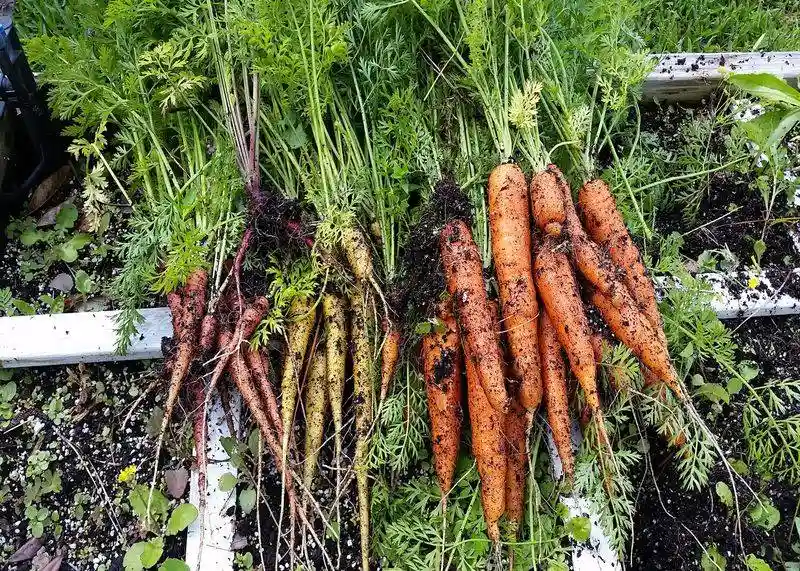
Carrots find unexpected success in Mississippi’s summer mud with raised beds. These root veggies navigate the sticky soil effectively, reaching deep for nutrients. Carrots are a popular choice for both fresh eating and cooking, ensuring they remain a market staple. Their vibrant orange hue appeals to both eyes and taste buds. For farmers, carrots provide an opportunity to diversify their crops with something that offers consistent demand. Their ability to enhance soil structure is an added benefit, making carrots a practical crop choice in challenging conditions.
Green Beans
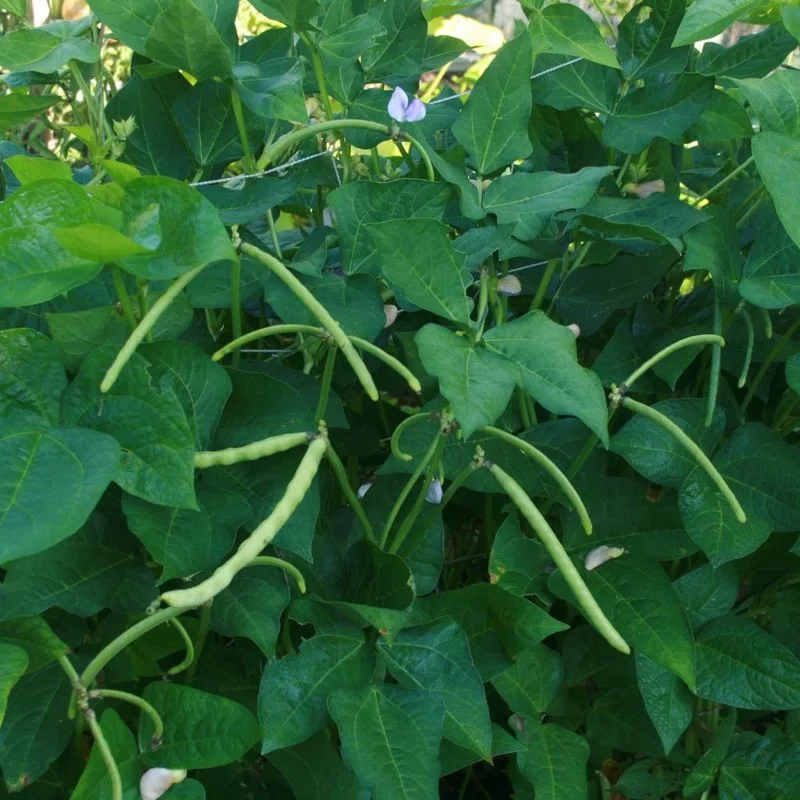
Green beans thrive in Mississippi, bringing both taste and resilience to the table. These plants enjoy the warm, muddy conditions, offering repeated harvests throughout the summer. Green beans are a kitchen staple, used in a variety of dishes, ensuring steady demand. Their growth helps fix nitrogen in the soil, benefiting subsequent crops. Farmers appreciate their relatively easy maintenance and high yield. Whether bush or pole variety, green beans adapt well to Mississippi’s climate, making them a valuable addition to any farm. They balance economic gain with soil health benefits.
Pumpkins
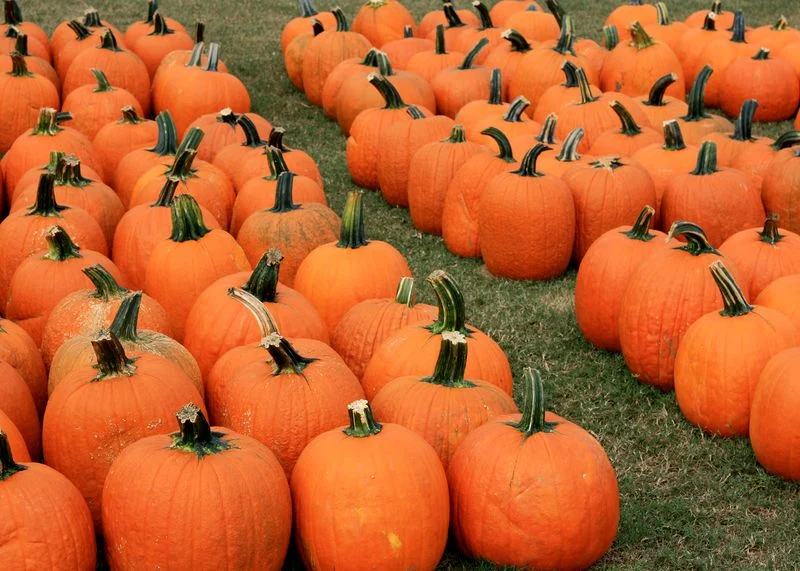
Pumpkins make a bold statement in Mississippi’s summer mud. These sprawling vines love the warm, moist conditions, producing large, orange fruits that capture the essence of autumn. Pumpkins are more than just festive decor; they offer culinary versatility, from pies to soups. Their extensive roots help stabilize the soil, improving its structure. For farmers, pumpkins provide a seasonal market boost, with high demand during fall. Their ability to cover ground reduces erosion and conserves moisture. Pumpkins bring both economic and environmental benefits to Mississippi farms.
Lettuce
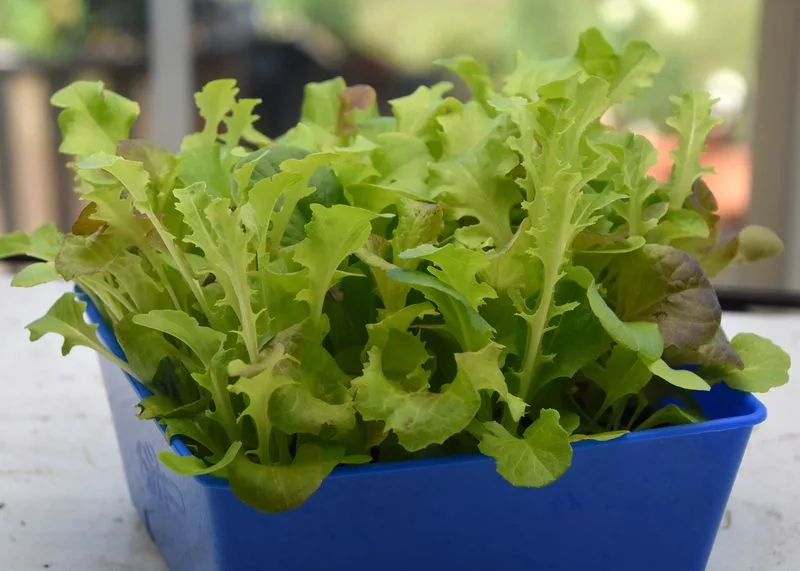
Lettuce, with its tender leaves, surprisingly adapts to Mississippi’s mud. These greens prefer cooler temperatures but can thrive with careful timing and planning. Lettuce offers a rapid growth cycle, allowing farmers to harvest multiple times. Its presence in salads and sandwiches keeps it in high demand. To mitigate mud-related issues, raised beds and proper spacing can help ensure cleaner, healthier heads. Lettuce contributes to soil health through crop rotation practices. For market gardeners, it’s a profitable crop that marries quick returns with soil benefits.
Peppers
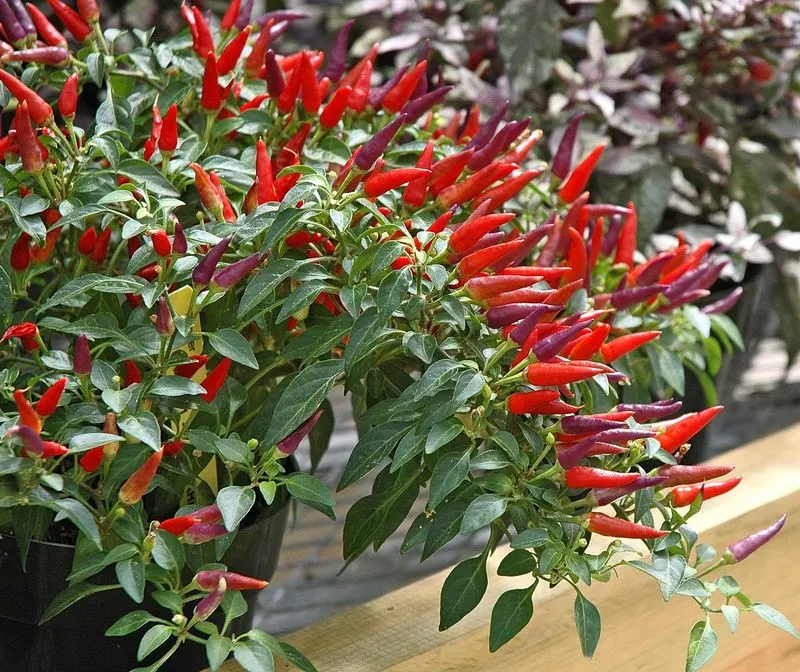
Peppers, both hot and sweet, add a vibrant touch to Mississippi’s agricultural scene. They flourish in the state’s warm, moist environment, offering a burst of color and flavor. Peppers require good drainage to prevent root rot, making raised beds a practical solution. Their culinary versatility keeps them in high demand, from stir-fries to salsas. For farmers, peppers provide a lucrative crop option with diverse market appeal. They also contribute to pest management by attracting beneficial insects. Peppers are a practical choice, combining economic potential with ecological benefits.
Quinoa
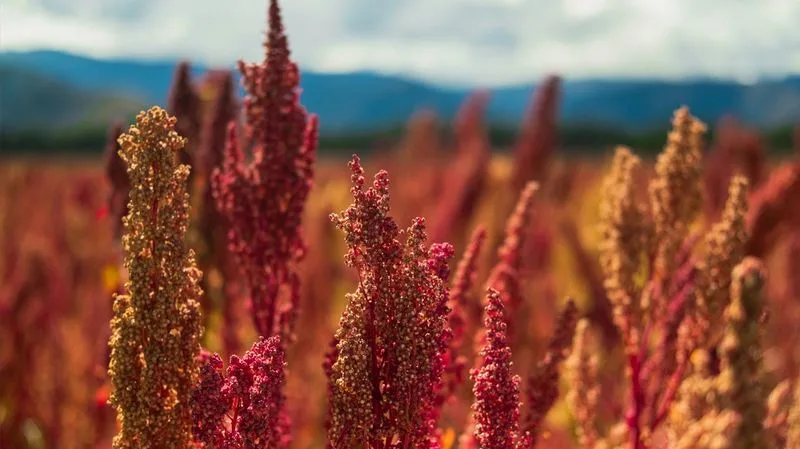
Quinoa, native to the Andes, thrives surprisingly well in Mississippi’s mud. Its robust nature allows it to adapt to various soil conditions, including the thick, sticky mud prevalent in the summer months.
This pseudo-grain is not only a protein powerhouse but also adds a unique visual appeal with its colorful seed heads. In Mississippi, it provides a nutritious alternative crop, fitting seamlessly into diverse diets.
Despite its origins, quinoa’s ability to handle excess moisture makes it a valuable addition to Southern gardens. Consider experimenting with quinoa to diversify your summer harvest.

